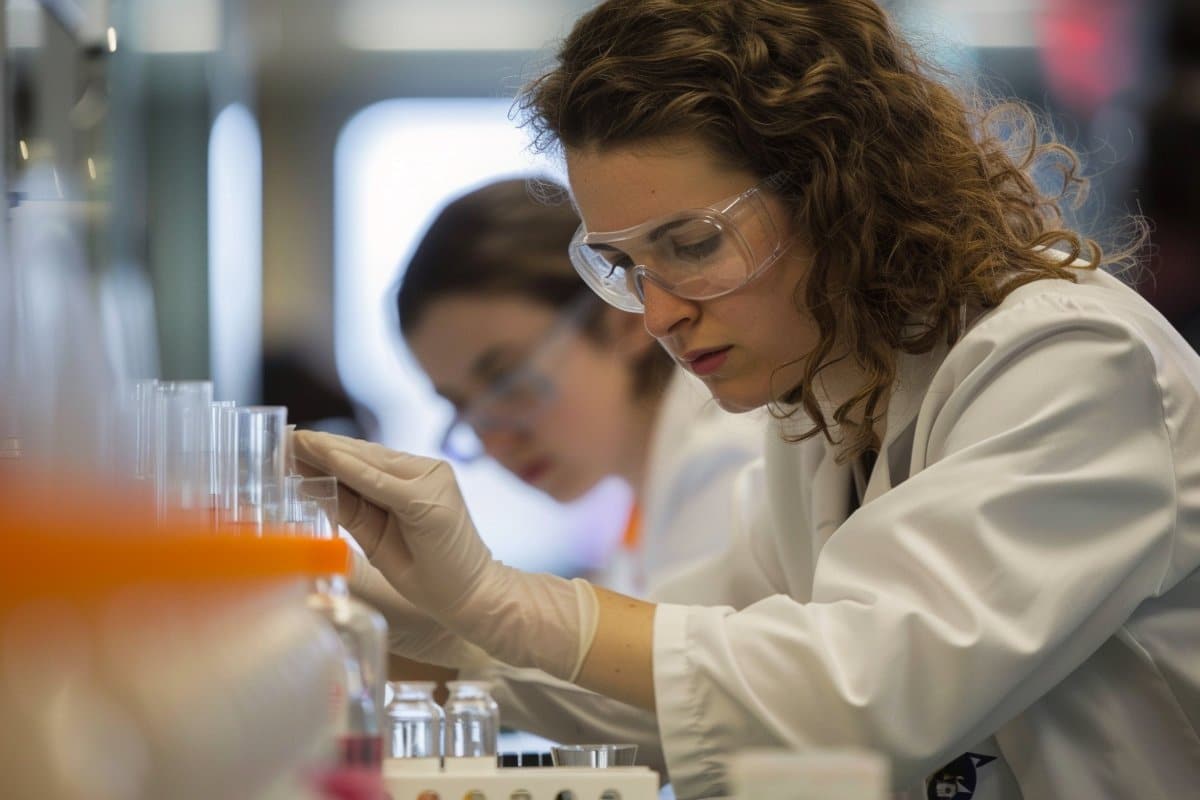Summary: A new study revealed varying levels of trust in scientists across 45 different fields, highlighting how perceptions of competence and morality influence public confidence. Conducted with 2,780 U.S. participants, the research found that trust levels varied significantly, with neuroscientists and marine biologists ranking highest, while political scientists and economists were trusted less.
The study underscores the importance of understanding public trust in scientific experts as essential for effectively addressing global challenges through informed policymaking. This research offers a nuanced view of how trust in scientists can shape their influence on societal issues and policy decisions.
Key Facts:
- Variability in Trust: Trust in scientists varies widely by field; neuroscientists and marine biologists are among the most trusted, while political scientists and economists rank lower.
- Influencing Factors: Perceptions of competence and morality are critical in shaping trust in scientists, with morality playing a more significant role in fields dealing with controversial topics.
- Implications for Policy: Understanding these trust dynamics is crucial for integrating scientific expertise into policymaking, particularly in addressing complex societal challenges.
Source: University of Amsterdam
Understanding why some people trust scientists more than others is a key factor in solving social problems with science. But little was known about the trust levels across the diverse range of scientific fields and perspectives.
Recognizing this gap, researchers from the University of Amsterdam investigated trust in scientists across 45 fields.
They found that, in general, people do trust scientists, but the level of trust varies greatly depending on the scientist’s field, with political scientists and economists being trusted the least.

Scientists are on the front lines of tackling some of the world’s biggest challenges, from climate change and biodiversity loss to pandemics and social inequalities. With these pressing issues at hand, there is a growing expectation that scientists will actively participate in shaping policies that affect us all.
At the same time, concerns have risen about people’s trust in scientists, as not everyone has enough faith in scientists to use their ideas to solve the pressing issues. This lack of trust poses a significant barrier to the implementation of scientific solutions.
From agronomists to zoologists
In their study, involving 2,780 participants from the United States, social psychologists from the University of Amsterdam (led by PhD candidate Vukašin Gligorić) shed light on the factors shaping trust in 45 different types of scientists, from agronomists to zoologists.
According to the authors, no other study has yet investigated the trust in such a large number of scientists.
Participants were quizzed on how they see scientists with regard to:
- Competence: how clever and intelligent they consider scientists
- Assertiveness: how confident and assertive
- Morality: how just and fair
- Warmth: how friendly and caring
Participants also completed a newly developed Influence Granting Task. This task presented participants with a complex problem and asked them to allocate decision power to different parties like citizens and friends, with one party always including one group of scientists.
Trust levels varied considerably
Gligorić and colleagues discovered that, overall, people tended to trust scientists. Trust levels, however, varied considerably depending on the scientist’s field of study.
For example, on a 7-point scale, with 7 being most trusted and 1 least, political scientists and economists scored a 3.71 and 4.28, respectively, while neuroscientists and marine biologists enjoyed the highest levels of trust, with scores of 5.53 and 5.54, respectively.
Competence and morality
The authors also conclude that there are two major factors that drive trust: perceptions of competence and morality.
When people viewed scientists as competent and morally upright, they were more likely to trust them and were then willing to let scientists have a say in solving society’s problems.
Interestingly, the importance of morality in shaping trust varied across different scientific fields.
Morality mattered most when it came to trusting scientists working on controversial topics like climate change or social issues, but less so for other scientists such as geographers or archeologists.
The diversity of scientific fields must be taken into account
The authors say that their study is not only important for understanding how trust in scientists is shaped, but also for understanding what makes people look for scientists’ input in policymaking.
‘This study is just the beginning,’ says Gligorić.
‘Future research should explore the generalisability of these findings beyond the U.S. context and delve into the causal relationships between trust and other variables.
‘Nevertheless, one thing is clear: the diversity of scientific fields must be taken into account to more precisely map trust, which is important for understanding how scientific solutions can best find their way to policy.’
About this neuroscience and psychology research news
Author: Laura Erdtsieck
Source: University of Amsterdam
Contact: Laura Erdtsieck – University of Amsterdam
Image: The image is credited to Neuroscience News
Original Research: Open access.
“How social evaluations shape trust in 45 types of scientists” by Vukašin Gligorić et al. PLOS ONE
Abstract
How social evaluations shape trust in 45 types of scientists
Science can offer solutions to a wide range of societal problems. Key to capitalizing on such solutions is the public’s trust and willingness to grant influence to scientists in shaping policy.
However, previous research on determinants of trust is limited and does not factor in the diversity of scientific occupations.
The present study (N = 2,780; U.S. participants) investigated how four well-established dimensions of social evaluations (competence, assertiveness, morality, warmth) shape trust in 45 types of scientists (from agronomists to zoologists).
Trust in most scientists was relatively high but varied considerably across occupations.
Perceptions of morality and competence emerged as the most important antecedents of trust, in turn predicting the willingness to grant scientists influence in managing societal problems.
Importantly, the contribution of morality (but not competence) varied across occupations: Morality was most strongly associated with trust in scientists who work on contentious and polarized issues (e.g., climatologists).
Therefore, the diversity of scientific occupations must be taken into account to more precisely map trust, which is important for understanding when scientific solutions find their way to policy.






